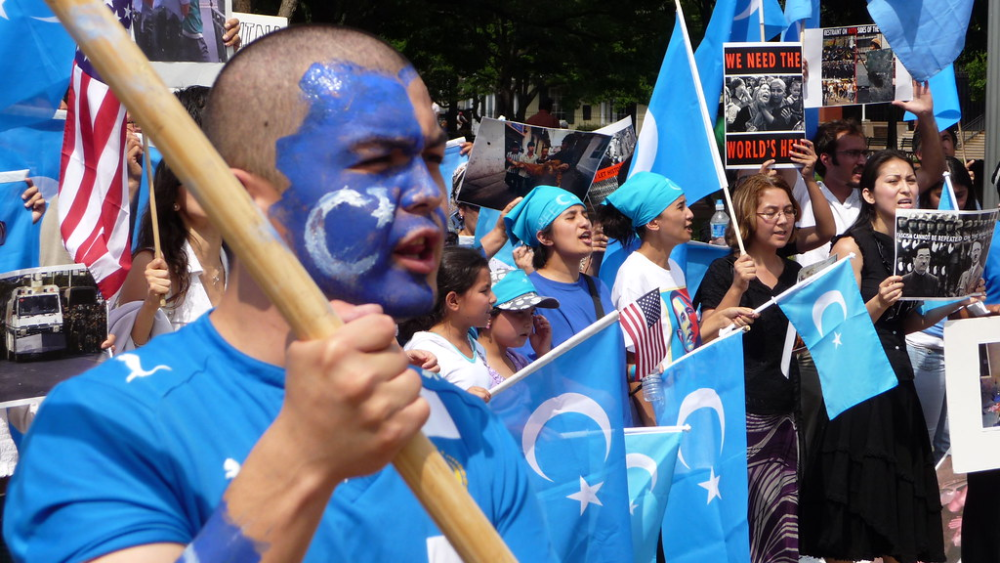
By Ansharah Asif
Since April 2017, around three million Uighurs and other Muslim minorities, including ethnic Azerbaijanis, Uzbeks, Kazakhs, Turkmens and Kyrgyz, have been forced into more than 85 identified camps within Xinjiang, an autonomous region in northwest China.
The Chinese government long denied accusations of such camps, but when images of camp construction, watchtowers and barbed fences were captured via satellite, they acknowledged the existence of the camps but referred to them as re-education centers.
“I was immediately struck by how many camps there were, how large, and how quickly they are growing. In a matter of months they are throwing up five-story buildings, longer than football fields, lined up in rows in the desert,” Edward Boyda, co-founder of the non-profit Earthrise Media that analyzes satellite images of the Uighur camps, told Reuters. “The construction and arrangement of buildings is very similar from site to site, in the new sites especially, which means there is a method behind it.”
The majority of Uighur camp detainees have never been charged with crimes but are being detained for a variety of reasons, such as having any sort of communication or association with any of the 26 Muslim countries China considers suspicious, such as Turkey or Kyrgyzstan, as well as attending mosques, having more than three children or reading the Quran, the holy book of Islam.
What actually occurs in these camps has not been disclosed; however, according to refugees, detainees are forced to pledge loyalty to the Chinese Communist Party and renounce Islam. Many are forced to work. It is rumored they are also forced to break many Islamic laws such as eating pork and drinking alcohol.
According to journalists reporting from Xinjiang, communist party members were to live in Uighur Muslim homes and report any “extremist” behaviors, such as fasting during Ramadan. Uighur parents were prohibited from giving their children Muslim names such as Mohammad or Medina. Halal food, which is arranged according to Islamic guidelines, has become a challenge to find.
Omir Bekali, a Kazakh held in one of the concentration camps, was forced to recant his beliefs, praise the Communist Party and support Chinese nationalism.
“The psychological pressure is enormous, when you have to criticize yourself, denounce your thinking―your own ethnic group,” Bekali said.
Many women have shared stories of being sexually abused and being forced to undergo abortions as well as having contraceptive devices implanted. In 2017, a law was passed in Xinjiang prohibiting men from growing out their beards and women from wearing veils. Many mosques were also torn down.
Many released detainees have committed or are considering suicide. Families have been separated. Children are being held in either state-run orphanages or “boarding schools.”
Why target the Uighurs? Chinese officials blame the East Turkestan Islamic Movement (ETIM), reportedly founded by Uighurs, for committing acts of terrorism in Xinjiang and beyond and for promoting hopes of establishing an independent state of East Turkestan in China.
Xinjiang also plays an important role in China’s Belt and Road Initiative, known as the “New Silk Road,” which will connect Asia with Europe and Africa through a system of land networks designed to increase trade and economic growth. Because Xinjiang is a major part of China’s border with its western neighbors, ETIM poses a threat to the planned networks.
As a result, President Xi Jinping laid the groundwork for the camps during a series of speeches in Xinjiang in 2017, in which he advocated using the camps to eliminate Islamic extremists. The detention camps were then implemented by Chen Quanguo, Xinjiang’s Communist Party secretary.
Countries around the globe have responded to the situation in various ways. In 2019, Turkey became the only Muslim country to call for the full protection of the cultural identities of detainees and a distinction between “terrorists and innocent people” during a United Nations (UN) Human Rights Council session. UN officials have requested access to the camps.
In 2019, the U.S. placed visa restrictions on Chinese officials linked to the abuse of Muslims in Xinjiang. The U.S. also blacklisted Chinese companies and agencies associated with abuses in the region, preventing them from buying U.S. products.
In June 2020, United States President Donald J. Trump signed legislation, passed with considerable support from Congress, which commanded that those linked with the oppression of Uighurs face penalties. The law also requires that U.S. businesses do not commit human rights violations such as the use of forced labor.





